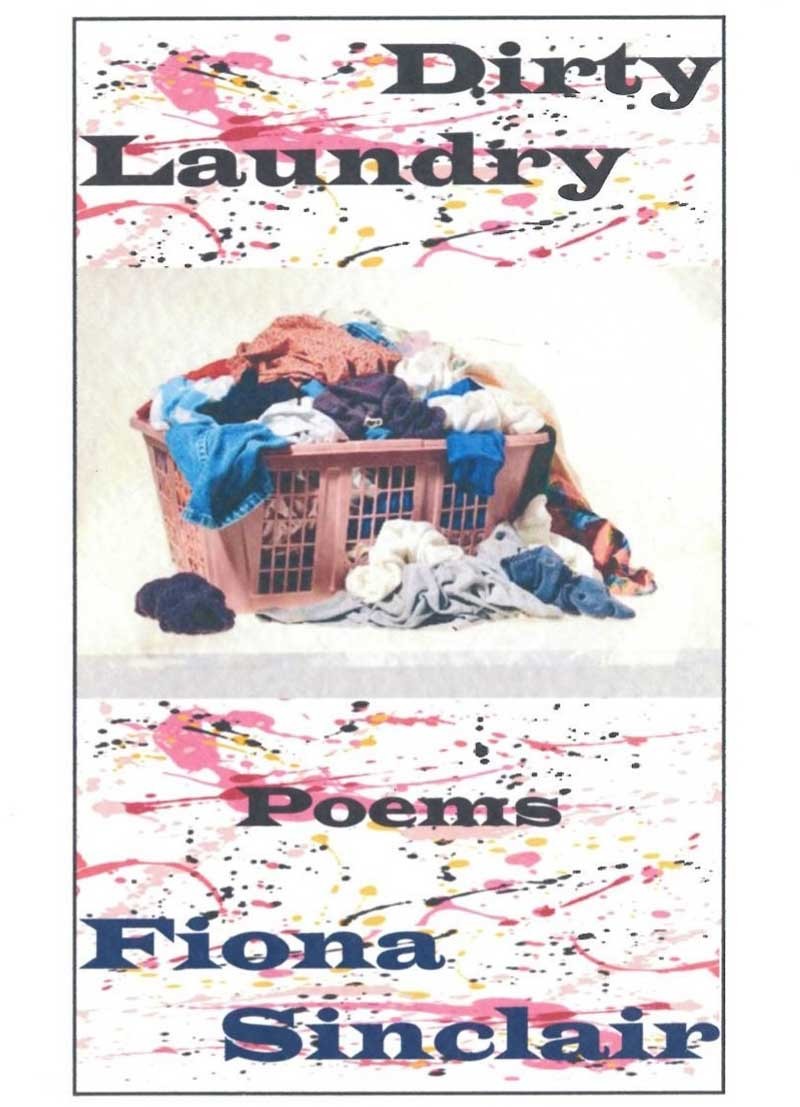An often gruelling but always gripping read, Fiona Sinclair”s first work through Koo Press provides a refreshing change of approach to the chapbook format.
One of the first things I noticed when opening Dirty Laundry is its apparent length: at fewer poems than I’d expect, the chapbook is no shorter than most, suggesting very long pieces of writing. However, Sinclair’s use of the long line packs a great deal in a page.
The writing is aggressive and minimal with adjectives. Despite the length of her sentences, Sinclair’s verbs make their reading punchy and I find that exciting in poetry. There is a great deal of exposition by necessity in this case but it mirrors the impact of a well written play.
There are occasions where I don’t find a passage, or a page, very poetic, but I don’t think this is to the book’s detriment. Sinclair’s story is of a beautiful woman’s life gone sour, and her daughter’s mute attempts to keep a semblance of ‘home’ despite alcoholism, poverty and affairs which border on prostitution.
The poems, linked like acts, carry too much drama to lend themselves to an easy quote. There is wit, yes, and the characters are well developed. The women engender great sympathy despite their inadequacies, and the men are all dastardly. The lodger, an unwelcome mix of goblin and pervert, fits so well with the furniture that he doesn’t seem a typical polluting influence a fantastic touch.
In the bathroom, the lodger grunted and snorted as he attempted/to make appetizing his goblin’s body with soap and aftershave.
The emphasis on the house and not the home puts me in mind of the kitchen sink drama. Mother clings to her fading beauty and the money from her late husband’s estate. Daughter has twin desires to save her and to escape. Despite its similarity to a play, the collection does not read chronologically but places the resolution last, the crux first and the beginning in the middle. This has the effect of changing what the reader thinks of the characters at each stage.
I didn’t imagine I’d enjoy Dirty Laundry as much as I have after several reads, but the approach Sinclair takes to the page is edifying. I would say the first 10 minutes of reading were wasted as I approached the book in the wrong way. I can’t dip in and pick a favourite because I don’t believe Sinclair intended to write in this way, but if pressed I would pick the sting at the conclusion of Days:
Dismissing medical interference in her body’s plans,mother accepted, resolutely, the exit cancer offered.
Dirty Laundry is in places gruelling, cathartic, sexualised, and depressing. However, there is no general air that life is imagined to be the same way it’s just a grim cautionary tale with a polished lack of moralising.
Dirty Laundry is published by Koo Press and is available now.
